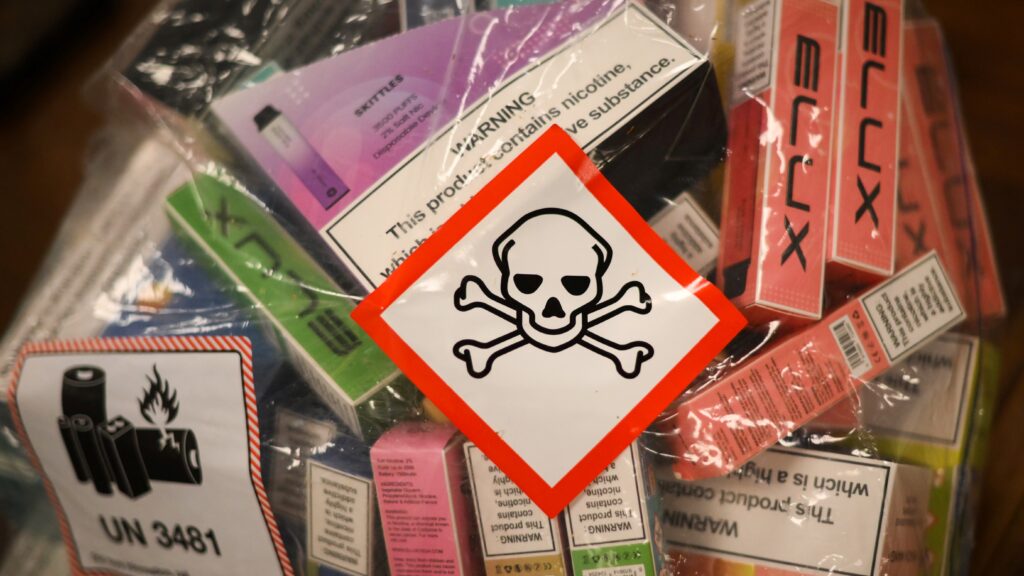The number of U.S. kids who are using e-cigarettes has continued to tumble, new federal data show, prompting government health officials to declare an incremental victory in their fight against youth tobacco use.
Around 6% of middle and high school students used vapes in 2024, down from 8% last year, and a record high of 20% in 2019, according to a survey released Thursday by the FDA and the CDC. The vape brand Juul fueled this surge, but has since receded in popularity after FDA actions and legal challenges.
advertisement
Public health officials previously struggled to attribute that decline to fewer kids vaping, due to the Covid-19 pandemic disrupting data collection. This year, though, the Food and Drug Administration and Centers for Disease Control are celebrating the drop.
“I want to be unequivocally clear that this continued decline in e-cigarette use among our nation’s youth is a monumental public health win,” said Brian King, director of the FDA’s Center for Tobacco Products.
The data were collected through the National Youth Tobacco Survey, a questionnaire distributed to middle and high schoolers across the country each year and then analyzed by the FDA and CDC. The survey has asked about e-cigarette use since 2011.
advertisement
King and Deirdre Lawrence Kittner, director of the CDC’s Office on Smoking and Health, credited the decline to anti-smoking educational campaigns coordinated by both the agencies. King also noted the FDA’s efforts to shut down illegal sales of vapes, including a bevy of warning letters sent to shops selling Elf Bars and Esco Bars last year. The most popular e-cigarette brand among kids is Elf Bar, with around 36% of e-cig users listing it as their vape of choice.
Outside experts were heartened by the continued decline, but noted that around 1.6 million kids are still vaping. The FDA has struggled to punish both manufacturers and vendors for selling unapproved products, with thousands of illegal e-cigarettes remaining on the market.
“It is encouraging news that youth e-cigarette use has fallen sharply,” Yolonda Richardson, CEO of the Campaign for Tobacco-Free Kids, said in a statement. “Despite this progress, youth e-cigarette use remains a serious public health problem in the United States… Relevant federal agencies must step up their enforcement efforts to clear the market of all illegal e-cigarettes.”
The agencies also asked kids about their use of nicotine pouches like Zyn. Social media influencers have helped increase demand for the products, with parent company Philip Morris International predicting it would sell 580 million cans this year. In January, Sen. Chuck Schumer (D-N.Y.) asked the FDA and Federal Trade Commission to probe the company to prevent it from “locking its sights on young kids.”
Nicotine pouches like Zyn do not seem to have gained much traction with youth based on the survey. About 1.8% of kids reported using pouches in 2024, compared to 1.5% in 2023.
“In some ways, we would have expected that to be going up faster than it has,” said Kenneth Warner, a public health expert at the University of Michigan. “It may still catch on. They’re still relatively novel.”
Richardson expressed concern that use of the pouches might grow given their kid-friendly flavors, online presence, and ability to be used inconspicuously. King said the FDA is still concerned about nicotine pouch use among kids and will continue to keep an eye on it.
advertisement
The initial results of the survey published on Thursday do not include data on traditional cigarette use among students. In 2023, just 1% of middle schoolers and about 2% of high schoolers said they smoked cigarettes.

